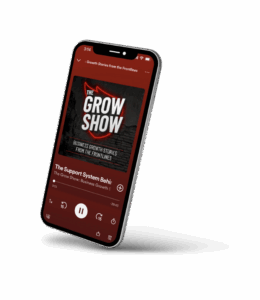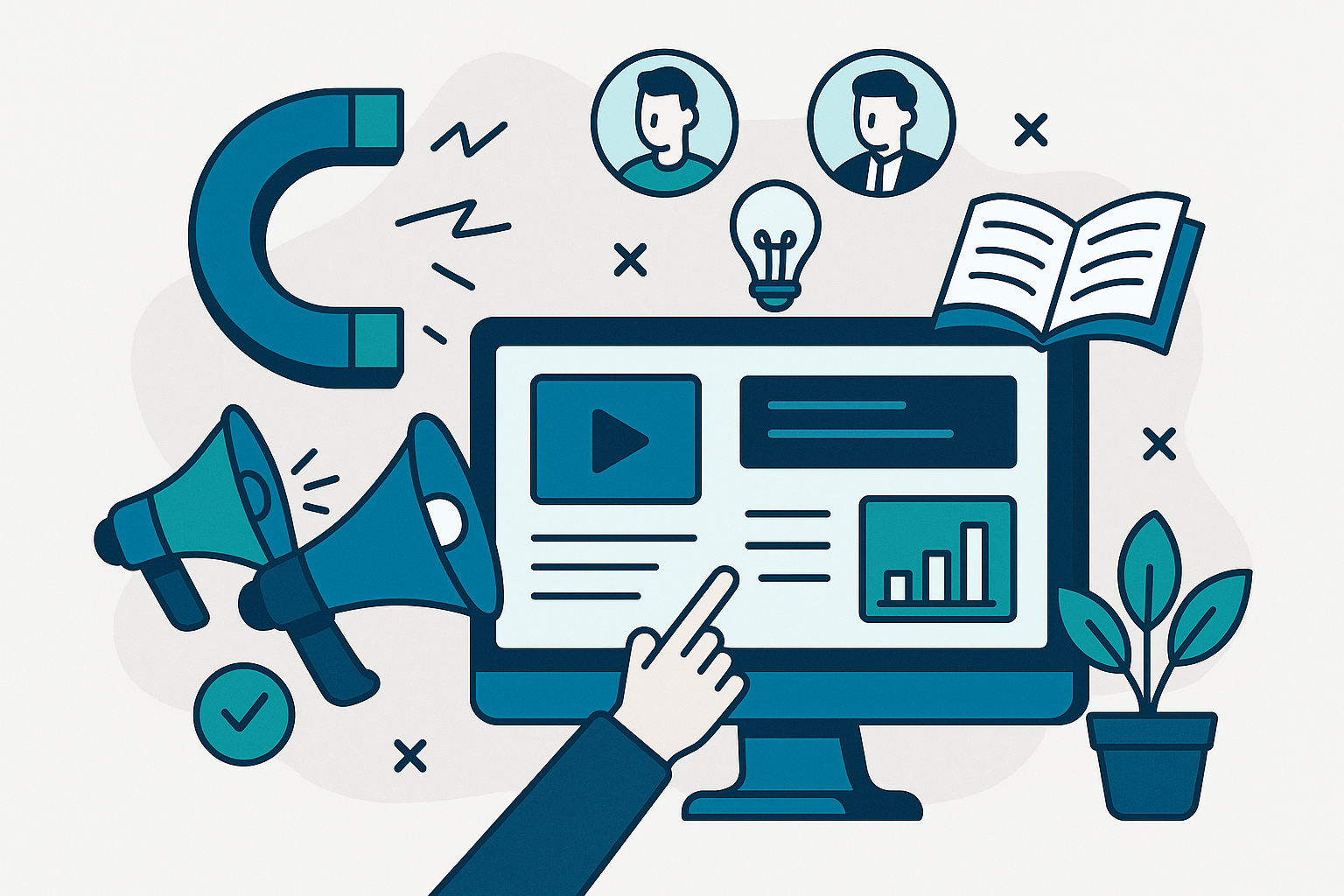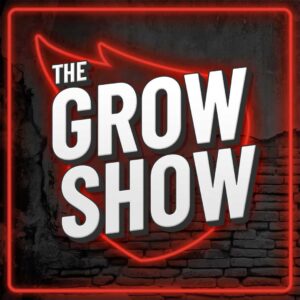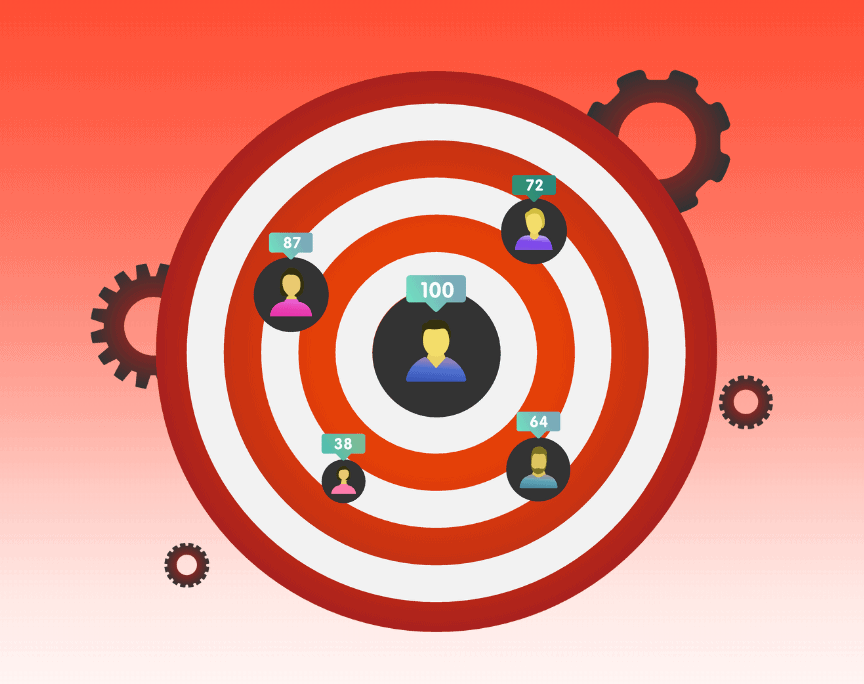For IT service companies, lead generation is only half the battle. The real growth engine lies in demand generation—the art and science of creating awareness, sparking interest, and guiding potential buyers through a journey that ends with trust, value, and a signed contract.
Demand generation for IT services requires a strategic mix of content, engagement, and automation. Buyers don’t want a sales pitch. They want education, relevance, and proof that your IT firm understands their challenges and can solve them.
In this guide, we’ll break down a proven demand gen framework that works for IT service providers. You’ll learn how to use webinars, gated content, and nurture workflows to attract the right audience and move them toward a discovery session. Whether you’re selling managed IT, cybersecurity, cloud migration, or co-managed services, these strategies will help fill your pipeline with high-quality leads.
Contents
- 1 Why Demand Generation for IT Services Is Different
- 2 The Foundation: Know Your Ideal Customer Profile (ICP)
- 3 Pillar #1: Webinars That Teach, Not Sell
- 4 Pillar #2: Gated Content That Converts Curiosity Into Leads
- 5 Pillar #3: Nurture Workflows That Build Trust Over Time
- 6 Content Strategy: Map Your Funnel
- 7 Multi-Channel Demand Generation Campaigns
- 8 Case Study: Demand Gen in Action
- 9 Metrics That Matter
- 10 Mistakes to Avoid
- 11 Advanced Webinar Promotion Strategies That Drive Registrations
- 12 Lead Scoring: Identify Sales-Ready Prospects Faster
- 13 Long-Term Content Planning for Sustained Demand
- 14 Templates You Can Use Right Now
- 15 How to Align Sales and Marketing Around Demand Gen
- 16 Bonus: Ideas for Future Gated Content
- 17 Discovery Sessions: The Bridge Between Interest and Close
- 18 Conclusion: Build Predictable Demand with Purpose
Why Demand Generation for IT Services Is Different
Selling IT services is not like selling a product. You’re selling trust. You’re selling a relationship. You’re selling peace of mind.
That’s why demand generation in this space must:
- Build credibility through education
- Deliver consistent value before asking for a sale
- Engage prospects on their timeline, not yours
- Use content to guide, not just promote
B2B buyers today do their research long before talking to a sales rep. According to Gartner, 83% of the buyer journey happens before a direct vendor interaction. Your demand generation strategy must reflect that reality.
The Foundation: Know Your Ideal Customer Profile (ICP)
Effective demand generation starts with clarity. Before launching campaigns, you need to define:
- Industries you serve best (finance, healthcare, SaaS)
- Company size (20–200 employees? Multi-site?)
- Pain points they face (slow ticket response, outdated infrastructure, compliance stress)
- Decision makers you need to reach (CFOs, IT managers, business owners)
Once this is nailed down, you can craft messaging and content that speaks directly to these people—and build a strategy that positions your IT firm as the right choice.
Pillar #1: Webinars That Teach, Not Sell
Webinars are one of the most powerful demand generation tools for IT companies. They let you educate your audience, build thought leadership, and capture contact info—all without a hard sales pitch.
What Makes a Webinar Convert?
- Topic Relevance: Solve a problem your ICP is actively trying to fix
- Clear Takeaways: Teach them something useful, even if they never buy
- Strong Promotion: Email campaigns, LinkedIn ads, and partner networks
- Compelling Speaker: Someone with domain expertise and charisma
- Follow-Up Plan: Every registrant should trigger a nurture sequence
High-Performing Webinar Topics for IT Services
- “How to Prevent the Top 5 Cyber Threats in 2025”
- “What Every CFO Should Know About MSP Pricing Models”
- “Cloud Migration: What IT Leaders Wish They Knew Before Starting”
- “HIPAA, SOC 2, and You: The 2025 Compliance Checklist”
Webinars don’t have to be long. Even 30–45 minutes is enough if your content is sharp and engaging.
Pillar #2: Gated Content That Converts Curiosity Into Leads
Webinars get people in the door. Gated content keeps them engaged and helps qualify your leads.
This includes:
- Checklists
- Ebooks
- Playbooks
- Whitepapers
- Industry-specific guides
- ROI calculators
The Key to Effective Gated Content
It’s not about quantity. It’s about relevance and timing.
For example, if your target is a 50-person healthcare clinic, an asset titled “HIPAA Readiness Checklist for Growing Practices” will convert better than a general cybersecurity guide.
Your content should do one or more of the following:
- Help them solve a problem
- Help them justify a decision
- Help them compare vendors
- Help them prepare for change
Include forms that collect useful information—like company size or service need—but keep it short to avoid drop-offs.
Pillar #3: Nurture Workflows That Build Trust Over Time
Once someone downloads content or attends a webinar, the journey is just beginning. Nurture workflows keep your brand in front of them until they’re ready to talk.
This is where demand generation for IT services gets real.
Sample Nurture Workflow: Webinar Attendee
Day 1: Thank-you email + replay link
Day 3: Key takeaways from the webinar + related blog post
Day 7: Case study of a client who solved a similar issue
Day 10: Invite to a one-on-one discovery session
Day 15: Final follow-up with a new resource
Each step should provide value, answer questions, and build confidence. You’re not pushing. You’re guiding.
Best Practices for Nurture Sequences
- Use plain language
- Add personalization (industry, first name, role)
- Include strong, relevant CTAs (but only one per email)
- Optimize subject lines for open rates
- Space out emails strategically—don’t crowd the inbox
Use your CRM and automation platform to score leads based on engagement. Those who click, reply, or revisit key pages should be prioritized by sales.
Content Strategy: Map Your Funnel
Your demand gen content should align with the buyer journey:
Top of Funnel (TOFU)
- Purpose: Awareness and interest
- Content: Blog posts, infographics, educational videos, social content
- CTA: Download, subscribe, register
Middle of Funnel (MOFU)
- Purpose: Consideration and evaluation
- Content: Webinars, gated guides, comparison tools, product overviews
- CTA: Discovery session, calculator, deeper asset
Bottom of Funnel (BOFU)
- Purpose: Decision support
- Content: Case studies, customer testimonials, implementation guides
- CTA: Schedule consultation, request proposal
Use a content calendar to make sure you’re hitting every stage consistently.
Multi-Channel Demand Generation Campaigns
Email alone won’t cut it. To generate real demand, IT companies need to use multiple channels in tandem.
Best Performing Channels for IT Services
- LinkedIn Ads: Great for targeting IT managers and CFOs
- Retargeting Ads: Re-engage website visitors with relevant offers
- Email Marketing: For nurturing and direct outreach
- Live Chat: Helps convert traffic from content-heavy pages
- Video Snippets: Post quick 1–2 minute clips on LinkedIn to drive webinar signups
Coordinate all channels around the same core message and offer. For example, a “Q3 IT Planning Webinar” can be promoted via email, LinkedIn, and on your blog at the same time.
Case Study: Demand Gen in Action
Client: AlphaSecure IT
Location: Charlotte, NC
Service Offering: Managed IT + Cybersecurity
Goal: Increase discovery calls with mid-sized healthcare clinics
What We Did
- Launched a gated guide: “2025 HIPAA Prep Checklist”
- Promoted it via LinkedIn Ads and Google Search
- Triggered a 5-email nurture workflow after download
- Invited leads to a 30-minute “Compliance Strategy Call”
Results After 60 Days
- 347 downloads
- 51 discovery calls booked
- 9 new contracts signed
- Pipeline increased by $300,000+
Why it worked: Clear ICP targeting, valuable content, strong follow-up, and consistent messaging across all channels.
Metrics That Matter
To improve your demand generation strategy, track:
- Cost per lead (CPL)
- Webinar attendance rate
- Conversion rate on gated content
- Email click-through and reply rates
- Discovery session booking rate
- Sales-qualified lead (SQL) conversion rate
Don’t just look at vanity metrics like impressions. Focus on actions that move leads closer to a real conversation.
Mistakes to Avoid
Many IT service providers struggle with demand generation because of a few avoidable missteps:
- Focusing only on bottom-funnel CTAs
Not everyone is ready to book a call. Provide value first. - Using the same message for every segment
A CFO cares about risk and cost. An IT manager cares about performance and process. - Ignoring follow-up
Leads don’t nurture themselves. You need a workflow in place. - No tracking or optimization
If you can’t measure it, you can’t improve it.
Advanced Webinar Promotion Strategies That Drive Registrations
Creating a great webinar is only half the battle. If no one shows up, your efforts won’t generate demand. Promotion is where many IT firms fall short. You need a coordinated, multi-channel plan to fill your virtual seats.
1. Email Series (3-Part Minimum)
Start promoting at least 2 weeks in advance.
- Email 1: Announcement with value-focused subject line (“Protect Your Business: Join Our Cybersecurity Briefing”)
- Email 2: Speaker or topic spotlight with a short teaser video
- Email 3: Final reminder + limited seat CTA
Make registration dead-simple with a short form and auto-confirmation email.
2. Social Media Push
Use LinkedIn and Twitter to drive traffic.
- Tease tips or stats from the webinar
- Use short videos or audiograms
- Post 3–4 times per week leading up to the event
LinkedIn Events and Sponsored Content are especially useful for reaching B2B IT buyers.
3. Internal and Referral Networks
- Ask current clients to forward the invite to peers
- Promote via employee LinkedIn accounts
- Offer incentive for referrals or group attendance
The broader the reach, the better the demand capture.
Lead Scoring: Identify Sales-Ready Prospects Faster
Not all leads are equal. Lead scoring helps your team focus on those who are truly ready for a conversation.
Score by Engagement
Assign points for:
- Opening multiple emails
- Clicking through to case studies or CTAs
- Attending webinars
- Downloading mid-funnel content (e.g., pricing guides)
Score by Profile
Give extra weight to leads who:
- Match your ICP
- Are in key roles (CFO, IT manager)
- Work in target industries
Use Thresholds
For example:
- 30–50 points = Marketing Qualified Lead (keep nurturing)
- 50+ points = Sales Qualified Lead (alert sales to follow up)
This simple system ensures you’re not wasting time on unready prospects.
Long-Term Content Planning for Sustained Demand
Demand generation isn’t a one-off campaign. It’s a system built on long-term content strategy. Here’s how to plan your next 90 days:
Step 1: Choose 1 Monthly Theme
Pick topics tied to buyer challenges, such as:
- “Cybersecurity Awareness Month”
- “Modernizing Your IT Infrastructure”
- “Cost Optimization in Managed Services”
Step 2: Build Your Content Mix
For each theme, develop:
- 1 Webinar or live session
- 1 Gated guide or checklist
- 3–4 supporting blog posts
- 3 email drips
- Social posts & videos
This keeps everything aligned, reinforces your message, and builds trust through repetition.
Step 3: Track, Learn, Repeat
Use campaign analytics to learn what content resonates. Recycle top-performing pieces into new formats (turn a blog into a guide, a guide into a webinar, a webinar into video clips).
Templates You Can Use Right Now
Here are plug-and-play email templates to keep your workflows humming.
Email Template: Post-Webinar Follow-Up
Subject: Thanks for attending, [First Name] — here’s your replay
Hi [First Name],
Thanks again for joining our recent session on [Webinar Topic]. We hope you found it valuable.
If you missed part of the discussion or want to review the key takeaways, here’s the replay:
[Replay Link]
Need help applying these insights to your environment? Let’s chat.
[Book a Discovery Session]
Best,
[Your Name]
Email Template: Gated Content Download Nurture
Subject: Your [Guide Name] is inside
Hi [First Name],
Here’s your download: [Guide Name].
We created this to help IT leaders like you [achieve outcome or solve pain point]. If you have questions or want to explore how this applies to your environment, feel free to reach out.
[Book a Discovery Session]
Cheers,
[Your Name]
How to Align Sales and Marketing Around Demand Gen
Demand generation only works when sales and marketing are in sync. That means:
- Shared goals and lead definitions
- Agreement on ICP and buyer personas
- Closed-loop reporting
- Regular campaign feedback meetings
Here’s a quick meeting agenda you can use monthly:
- Review current MQL volume
- Compare SQL conversion rate
- Identify stuck leads and brainstorm touchpoints
- Share sales feedback on content and messaging
- Adjust scoring or workflows based on data
When both teams collaborate, prospects move through the funnel faster.
Bonus: Ideas for Future Gated Content
Stuck on what to build next? Here’s a list of lead magnet ideas tailored to IT services:
- “2025 IT Budget Planning Template”
- “MSP vs In-House IT: Pros, Cons, and Costs”
- “Cybersecurity Readiness Checklist for CFOs”
- “Cloud Migration Prep Sheet”
- “How to Evaluate a New IT Provider”
- “Co-Managed IT Starter Pack”
Each of these can live on your site as a downloadable asset promoted through email, social, or paid ads. Make sure every piece links to a next step like a discovery session or audit.
Discovery Sessions: The Bridge Between Interest and Close
All your demand generation work should lead to one thing: a conversation. But if your discovery sessions feel like a pitch, they’ll flop.
Make Your Discovery Sessions Buyer-Focused
Here’s a suggested structure:
- Quick context on their current IT landscape
- 3 questions about current challenges and goals
- 2 ways you’ve helped similar businesses
- Leave-behind assessment or roadmap
- Invite to deeper technical call if there’s a fit
No pressure. Just value, relevance, and next steps.
Conclusion: Build Predictable Demand with Purpose
Demand generation for IT services is how you move from unpredictable referrals to a scalable, consistent pipeline.
It’s how you:
- Stay top of mind with your ideal audience
- Build credibility without cold calls
- Create conversations with high-intent prospects
- Educate the market while showcasing your value
- Accelerate your sales cycle with qualified leads
The pieces—webinars, content, nurture workflows—only work when combined under a clear strategy tailored to your buyers.
If you’re tired of slow months, stalled leads, or relying too much on outbound outreach, it’s time to flip the script.

Madison Hendrix
Madison has worked in SEO and content writing at Abstrakt for over 5 years and has become a certified lead generation expert through her hours upon hours of research to identify the best possible strategies for companies to grow within our niche industry target audiences. An early adopter of AIO (A.I. Optimization) with many organic search accolades - she brings a unique level of expertise to Abstrakt providing helpful info to all of our core audiences.
- Madison Hendrix#molongui-disabled-link
- Madison Hendrix#molongui-disabled-link
- Madison Hendrix#molongui-disabled-link
- Madison Hendrix#molongui-disabled-link







